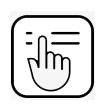
If you're experiencing any of these symptoms it is important to seek professional help as soon as possible in order to gain the understanding and support needed on your path to recovery.
Trembling
Feeling an overwhelming sense of fear
Having rapid heart rate
Shallow breathing
Sweating
Feeling faint or dizzy
Feeling disconnected
Nausea or other stomach discomfort
Chest pain
Tightness and a fear of impending doom

Most people sometimes worry about their health, job, money, or family. People with GAD experience panic & anxiety about these things and more in a persistent, excessive, and intrusive way.

Obsessive-compulsive disorder (OCD) is a panic disorder characterized by obsessions & compulsions that interfere with daily life. Symptoms include:

Agoraphobia is a panic disorder that involves an intense and irrational fear of being unable to exit a tricky or awkward situation. Symptoms of agoraphobia may include:

People with a social anxiety disorder (SAD) experience substantial & chronic fear of performance-related or social situations where they might be embarrassed, abandoned, or examined.

Traumatic events such as near-death experiences may cause people to feel sad, afraid & detached from others. With post-traumatic stress disorder, such adverse effects persist for long periods.

A specific phobia is an extreme & irrational fear of a specified object or situation. People with phobias often desperately avoid the things that scare them, as the confrontation of the things often worsens their condition.
Nurture your mental health with the right approach & treatment. Our therapists help you develop healthier ways of thinking & behavior to cope with your symptoms.


855-722-4422

“Panic attacks are the body’s way of shouting that you are ignoring your mind and feelings,”

- Neo
The first step in healing is acknowledging the problem & asking for help. Our therapists aim to create an inclusive space for you to talk and find the right support system.

Find Your Therapist

Check Your Insurance

Schedule Your Session

Get a tailored treatment plan for panic disorder to relieve symptoms & rejuvenate your mental health. We match you with the right panic disorder counselor to give you the attention and care you need.
Delve into virtual counseling for your panic disorder from the comfort of your home. Our Online therapists can help you better understand panic episodes, how to cope with them, and ultimately, validate your experience.
Find Your Therapists Nearby
Lifebulb has several locations for in-person counseling for panic attacks and is adding more regularly. We also provide telehealth or online therapy session services for those who may live distant from our offices. You can reach out to Lifebulb using our 24x7 active helpline, or you can search for us online; simply use ‘panic attack treatment near me,’ ‘panic attack counseling near me,’ ‘panic disorder treatment centers,’ ‘panic attack treatment centers,’ ‘treatment centers for panic disorder,’ or ‘panic disorder treatment centers near me.’
A professional counselor is a master- or PhD-level mental health professional approved by a state licensure board to diagnose and treat mental health disorders. The exact name of a professional counselor's license can vary by state, but some of the most common are: Licensed Mental Health Counselor (LMHC), Licensed Professional Counselor (LPC), Licensed Clinical Professional Counselor (LCPC), and Licensed Professional Clinical Counselor (LPCC).
Although panic attack medication is not always necessary, panic disorder can subside for some individuals without panic disorder medication, especially if they receive appropriate psychological treatment or make significant lifestyle changes. However, the course of panic disorder is unpredictable, making it crucial to seek professional guidance from a Counselor for panic attacks to determine the best course of action for your particular situation.
Therapy approaches or counseling for panic attacks, such as cognitive-behavioral therapy (CBT), exposure therapy, and stress-management techniques, can be helpful in managing panic disorder.
Additionally, making lifestyle changes, such as regular exercise, adequate sleep, avoiding caffeine and alcohol, and practicing meditation or yoga, can help alleviate symptoms. In severe cases, medication may be necessary or the effective use of the best medication for panic attacks and anxiety, it is vital to seek professional guidance to determine the best course of action.
It is possible to break a panic attack cycle with the right approach and tools. Here are some helpful strategies:
There are three categories of panic attacks:
Counseling for panic attacks can be an effective way to treat panic attacks, as they are often rooted in underlying psychological issues. Counseling can identify and address these issues through various approaches like cognitive-behavioral therapy (CBT), exposure therapy, and psychodynamic therapy. Additionally, panic disorder counseling can equip individuals with coping skills and relaxation techniques to manage and prevent future panic attacks.
To provide counseling for someone with panic attacks, the typical steps involved are:
There are different approaches that counselors may use to handle panic attacks, depending on their training and the individual's needs. Here are some common strategies:
If you are experiencing an emergency right now, please call 911 right away.
While Lifebulb is not a crisis center and Lifebulb therapists and counselors are not emergency services, we understand that urgent matters can and will pop up from time to time. You will have direct email and phone access to your therapist, who will make their best effort to be available to you when you reach out. Depending on your specific panic disorder treatment plan, your therapist may provide you with resources to use or contact when situations occur beyond the scope of your online panic attack treatment or offline anxiety and panic attacks treatment work together.
We accept major commercial insurance plans and offer low self-pay rates, which may vary slightly by geography and therapist licensure.
Explore our resources to learn more about panic disorder treatment & panic attack medication.